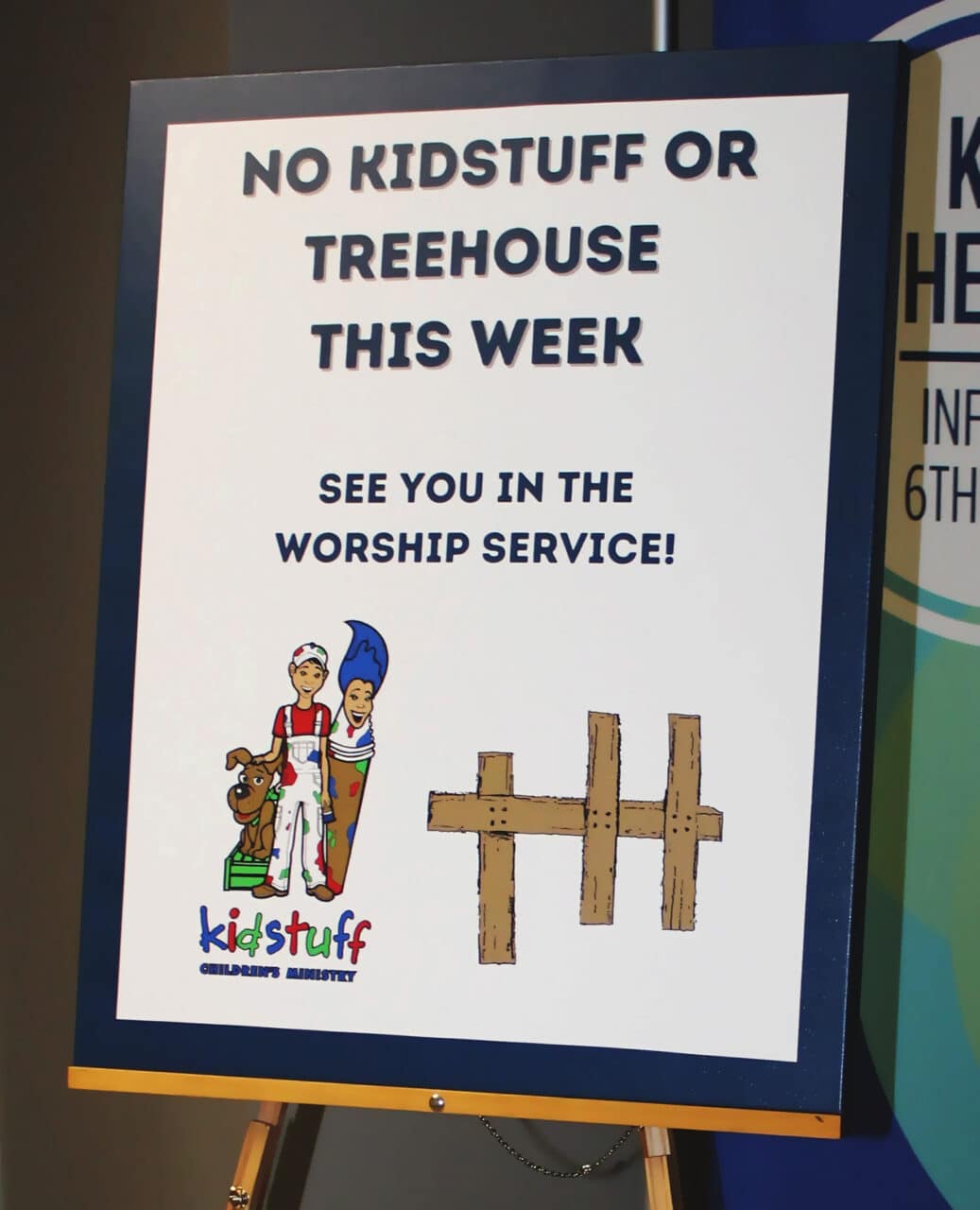Family Worship
What is a Family Worship Sunday?
Learn more about these special Sundays and how they are part of our commitment to help children believe, connect, and share.

Every Worship Service
at North Hills Church is a family worship service. All who are in Christ are a part of God’s family, and we anticipate the opportunity to gather each week as brothers and sisters in Christ to turn our hearts to God in unified worship.
An important part of this weekly worship experience is the attendance and participation of school-aged children. Worship services provide a vital venue for parents to train their children about community worship. These times provide numerous occasions for teaching and explaining that equip children to better understand the Lord and enable them to grow into worshipers themselves.
At North Hills, not only do we invite children to participate in our weekly worship services, we actually encourage parents to have their school-aged children in these services and to maximize every related opportunity for training the next generation of disciples.


If every Sunday is a family worship experience, why do we have Family Worship Sundays?
We know that not every family is able to stay for two services each Sunday, so it can be hard to worship together as a family and still let your children enjoy the age-appropriate teaching in Kidstuff and Treehouse. This can lead to children never having the opportunity to worship together with their parents. So, about 13 times a year, we give special emphasis to family worship by not holding classes that would separate parents and children.
Family Worship Sundays during the summer months also allow the Children’s Ministry teams to do some valuable training and preparation for World View and the next school year’s program.
How are Family Worship Sundays different from other Sundays?
As we plan our Family Worship Sundays, we keep in mind that your children will be with you in the service. While not all elements of the service can change, we try to implement more visuals and choose songs to make it easier for your children to participate.
Here are five ideas to help you shepherd your children through a Family Worship Sunday and any Sunday worship service:
START SATURDAY NIGHT
Include your children in laying out their clothes, Bible, and offering—even setting the table for a quick and simple breakfast so everyone is ready to get up on Sunday morning focused on getting to church as easily as possible. Read the passage that will be preached the next morning (which is included in our church-wide email) and make a few helpful comments to get your child thinking about tomorrow’s sermon.
EXPECT PARTICIPATION
Help your children participate throughout the service by sitting/standing with the adults, singing, clapping, bowing for prayer, giving an offering, etc. Depending on the child’s age, you should expect to whisper brief reminders or explanations to them that help them stay engaged. As you worship, you are training your child to do the same. (Don’t be embarrassed if your child does not behave perfectly or makes some noise. That is all expected and completely acceptable—even if someone down the row seems annoyed.)
CONTINUE SUNDAY MORNING
Play praise music as your children wake up and get ready. Be positive and cheerful as you help them get ready and out the door. Pray together as you sit at the table or drive to church, asking God to teach you during the service and use you to reach out to others who attend.
HELP WITH SERMON
Bring paper and pencils and have your children draw pictures about what they are hearing. Even if the sermon is not teaching through a “story” there will always be concrete material. As you hear things your children can grasp, whisper for them to draw something about that. (Don’t try to explain the details of the sermon during church. Make sure your child knows that you will talk about the message later. And make sure they know not to ask you lots of questions during the service. The discussions are great for the drive home and around the lunch table.)
- If your children have a hard time sitting through the sermon, after a time of listening and drawing, you may want to let them look through small books that you bring, especially Bible story books.
- As your children get older and can listen longer, you can help them learn to take notes during the sermon, either on the outlines provided or in a special “church notebook” where they can write and draw.
- If you have an active child, you may need to take him/her out part way through the service. Stretch your children to learn to sit through the entire service.
FOLLOW UP SOON AFTER CHURCH
Include your children in laying out their clothes, Bible, and offering—even setting the table for a quick and simple breakfast so everyone is ready to get up on Sunday morning focused on getting to church as easily as possible. Read the passage that will be preached the next morning (which is included in our church-wide email) and make a few helpful comments to get your child thinking about tomorrow’s sermon.
Children can infringe on our worship experience. In fact, many parents resent the distractions ushered into the pew by the presence of their children. Many just give up. I have heard more than a few parents confess, “I used to get more out of church before I had kids.” But the bigger issue is, “What does God get out of worship?” Worship is primarily meant to be good for God.
Worship is not a refueling to get us through another week. Worship is not a system of tradition built up over many years of congregational life until everyone feels comfortable. Worship is not an hour of Christian entertainment. Worship is the surrender of our souls to a God who is jealous for our attention, time and love. Worship is a challenge. With children it is a bigger challenge!
We need to work at our worship. With children, we often have to work harder.
Baseball and ballet are taught through participation, practice and patience. Children learn best by doing. Great baseball players are not made in the bleachers. Dancing is not learned by remote control. Children learn to worship the same way—through participation, practice and patience. Unlike baseball or ballet, however, worship is best taught by parents, not “professionals.”
Parents in the pew can show by example what it means to seek God, to love His Son and to respond to the Holy Spirit in worship. Children learn that prayer is important when they see their parents make it a priority. Children learn to give generously when their parents do. Children sing by following example as well as instruction. When worship is an obvious joy to parents, children will expect to experience the same.
Excerpt from Parenting In The Pew by Robbie Castleman